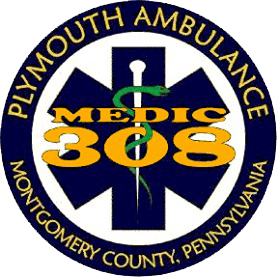
Community Education-Winter Heart Health
Welcome to 2019!! This is the first of the year’s community education articles. This month we would like to focus on winter heart health. Every year, people unfortunately pass away from sudden cardiac arrest or sudden heart attacks brought on by winter activities such as shoveling snow. We would like to go over signs and symptoms of these conditions, how to treat them, and general winter weather tips regarding heart health.
What is a Heart Attack and Sudden Cardiac Arrest?
A heart attack, or myocardial infarction, is when blood is cut off to the heart muscle which causes the muscle to not get oxygen. When this happens, the heart does not function as it normally would and the muscle begins to die. This is a serious medical emergency in which time is of the essence!
Sudden Cardiac Arrest is when your heart stops beating completely. Heart attacks can cause cardiac arrest if not treated in a timely fashion and leads to high mortality rates due to the severe damage to the heart muscle prior to the person going into cardiac arrest.
What are the symptoms of a Heart Attack?
Common early symptoms are:
- mild pain or discomfort in your chest that may come and go, which is also called “stuttering” chest pain
- pain in your shoulders, neck, and jaw
- sweating
- nausea or vomiting
- lightheadedness or fainting
- breathlessness
- feeling of “impending doom”
- severe anxiety or confusion
In women, they can experience the same symptoms but additional symptoms specific to women also include:
- pressure or pain in the center of your chest, which may spread to your arm
- Anxiety
Why does this happen to usually healthy people when shoveling or during other winter activities?
Shoveling is shown to be extremely dangerous to those over the age of 55, those who suffer from heart conditions, and those who do not work out regularly due to the increased stress on the body and various systems. Studies have shown that when shoveling snow, your blood pressure and heart rate increase more than when exercising on a treadmill. Due to the cold weather, blood vessels constrict causing a loss in blood supply. This creates the unfortunate ideal conditions for someone to suffer a heart attack or even sudden cardiac arrest! The same type of conditions are present when snow blowing large amounts of snow.
Tips to prevent or reduce the risk of heart attacks or sudden cardiac arrest during winter activities.
If you experience ANY symptoms mentioned above, CALL 911 IMMEDIATELY.
- Make sure someone else is home when performing this type of work
- Be sure to check on people frequently who are shoveling/snow blowing during storms
- Stop if you start to become fatigued
- Do frequent small shoveling sessions instead of 1 large time
- Lift lighter amounts of snow
- When snow blowing, do not overly force the blower into snow banks
For more information visit: https://www.bbc.com/news/blogs-magazine-monitor-30119410
